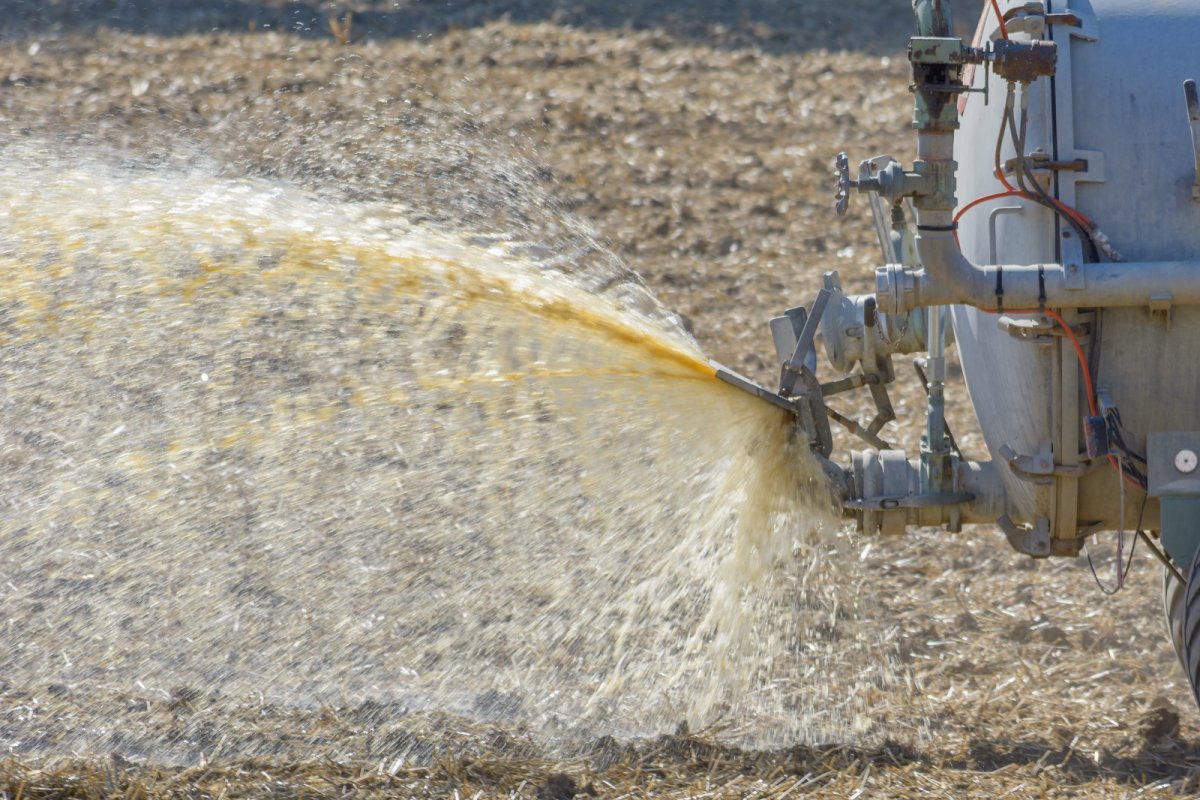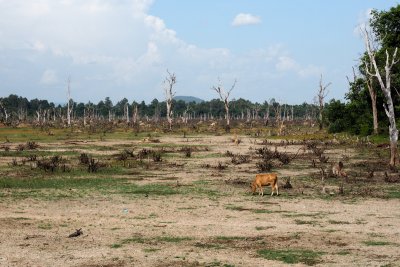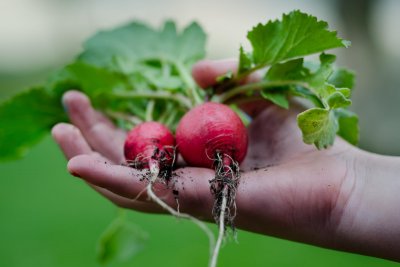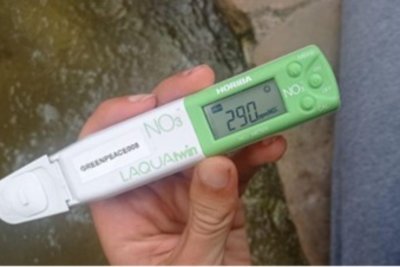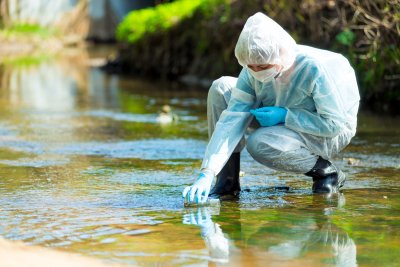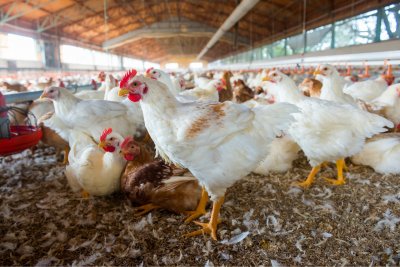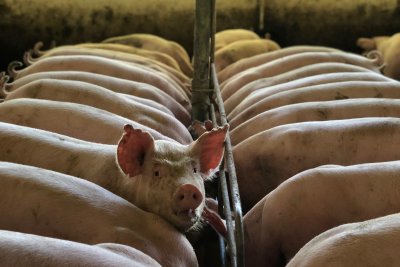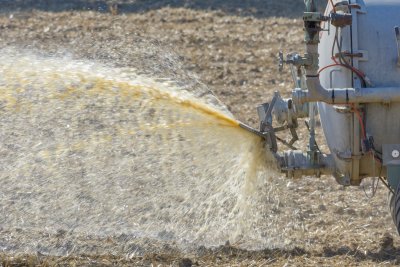 Tractor spreading slurry on farm. Copyright: Tob1900 | shutterstock
Tractor spreading slurry on farm. Copyright: Tob1900 | shutterstock
Pollution crisis blocking housebuilding in England
A third of the English councils where housing is needed most are in areas too polluted to build, with factory farming a major cause, according to new research by Compassion in World Farming, Friends of the Earth and Sustain.
A third of the English councils with the highest projected housing demand are in areas where it is too polluted to build new homes.
An increase in intensive livestock units, including industrial chicken, pig and dairy units was found to be a major contributor to the growing pollution crisis. Intensive pig and poultry farming in 2023 produced 18% more nitrates per year than in 2016. This equates to 27,000 additional tonnes of nitrates every year. Assuming intensive livestock farming continues to expand at its current rate, annual nitrate production could be up by 32% on 2016 levels by 2028.
Campaigners are calling on the government to use the current review of planning rules in England to prevent further expansion of intensive livestock ‘megafarms’ in polluted areas.
This research reveals for the first time the correlation between areas too polluted to build new homes and those with a large number of intensive livestock units, with Norfolk, Shropshire, Herefordshire, Dorset and Wiltshire most exposed.
Slurry and manure waste from animals kept indoors is high in phosphates and nitrates. When this waste is disposed of by spreading on fields it can pollute the air and wash into rivers. According to the latest Defra figures, soils in every region in the UK are now in nitrate surplus, and all but one is in phosphorus surplus, with agriculture the source of 70% of nitrate pollution.
Ruth Westcott, campaign manager for the climate and nature emergency at Sustain says:
“The government’s aim to get Britain building is at risk if we don’t stop the spread of intensive livestock units. It is well known that this way of keeping animals is cruel, disastrous for the climate and is a major cause of river pollution. Our research found that factory farm pollution is preventing new homebuilding in over a third of the places where they are needed most. The government must address this in the current planning review. We need to offer farmers fair and just routes to sustainable, nature friendly farming.”
Anthony Field, Head of Compassion in World Farming UK, said:
“This research highlights one of the hidden impacts of factory farming, revealing the extent of its pollution and its effect on nature. The constant stream of muck that is spread on our fields, day after day, week after week, is harming the natural world. The UK is already one of the most nature depleted countries globally and cruel, industrial farming is putting yet more pressure on our dwindling wildlife. It also has a huge impact on river health, with agriculture recognized as the number one polluter of our waterways. The Government manifesto says they will build 1.5 million homes by the end of this parliament. Ultimately to do this and ensure nature’s recovery they must ensure no new factory farms are built.”
Read report Toxic trade-off: The cost of factory farming on the UK’s housing future
Food for the Planet: Food for the Planet is helping local authorities, businesses and organisations take simple actions to tackle the climate and nature emergency through food.
Sustain
The Green House
244-254 Cambridge Heath Road
London E2 9DA
020 3559 6777
sustain@sustainweb.org
Sustain advocates food and agriculture policies and practices that enhance the health and welfare of people and animals, improve the working and living environment, promote equity and enrich society and culture.
© Sustain 2024
Registered charity (no. 1018643)
Data privacy & cookies
Icons by Icons8
